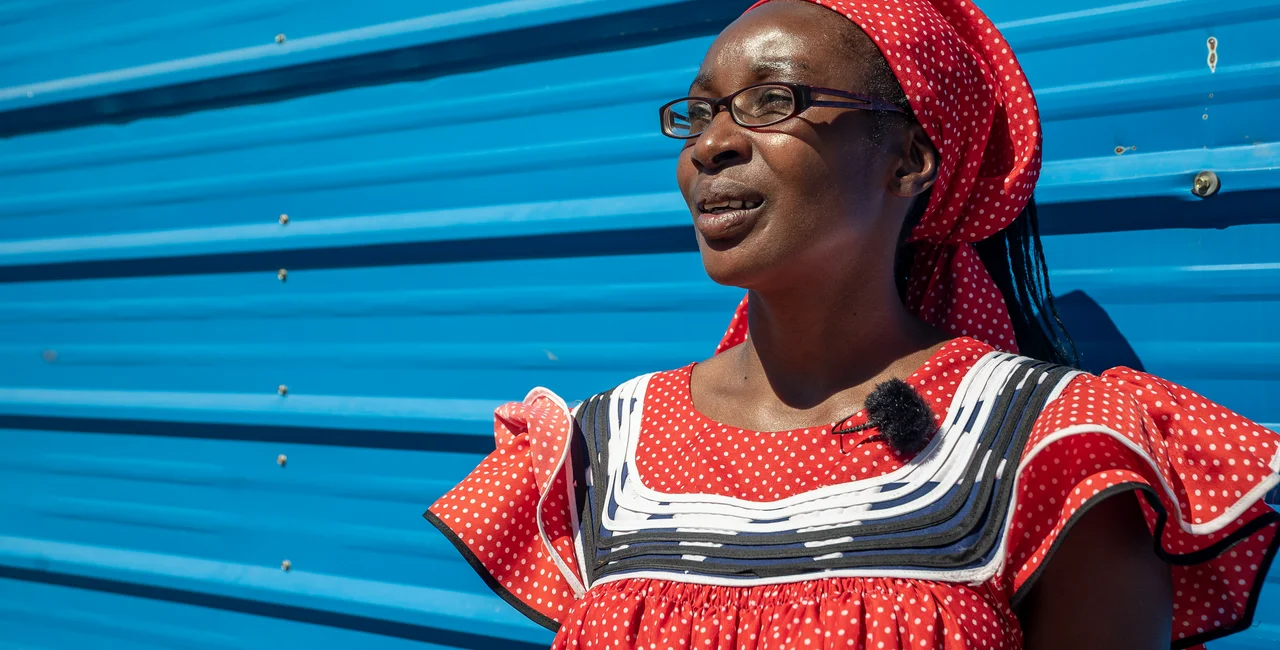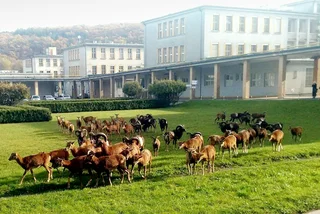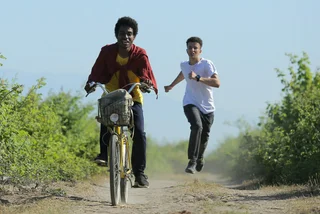A small group of people who were raised in Czechoslovakia live in Namibia, a country at the southern tip of Africa. Many of them still consider Czechia to be their home, and they would like to return.
Czech Government Commissioner for Human Rights Klára Šimáčková Laurenčíková drew attention to the story of Namibian Czechs and wants to help renew their links to Czechia.
Children from Namibia arrived in Czechoslovakia in the 1980s through a special educational program by a Namibian independence movement called South West Africa People's Organisation (SWAPO).
The children arrived in 1986 and at first were sent to the town of Bartošovice in the Moroavia-Silesia region for four years and then spent two more years in Prachatice in South Bohemia. During that time, they learned to speak Czech, which many of them still use. They also learned some cultural traditions.
The children were educated to become leaders
The Czechoslovak Communist Party planned to turn these 56 war orphans and semi-orphans into a new Namibian elite through education and training.
However, after six years the children were transported back to Namibia. The call for the children to be returned came from the Namibian side, as false rumors had spread that the children had been sold to Czechoslovakia and were being poorly treated.
"Their ties to Czechoslovakia were thus broken. The then-Czechoslovak government changed the life of a number of children who had to involuntarily change their home twice," Šimáčková Laurenčíková said.
The stories of the African Czechs were presented yesterday at the Goethe Institute in Prague in a documentary titled "Black Czechs."
The documentary by Martin Müller is based on the book "Černí sokoli" (Black Falcons) by cultural anthropologist Kateřina Mildnerová from Palacký University in Olomouc. The 65-minute film premiered in November 2022 and so far has had limited screenings. You can read more about it on Facebook and the film's website, and check for future screenings
Mildnerová previously said the then-educational program was a political and social experiment.
"Without completed primary education and without any language and psychological preparation, the children were forced to move to Namibia where they did not manage to adapt culturally," Mildnerová said last year before the film premiered.
"They were returned to a country whose language they did not know, where they did not have families and the life of many of them were affected by existential problems, drugs, or sexual violence," Mildnerová said.
The filmmakers searched for the Namibians, now adults, and mapped their life stories in Czechia and Namibia for three years. They talked to Czech educators and families who took care of the Namibian children in the 1980s.
Many of the now-adult children would like to return
The now-adult children say they consider themselves Black Czechs and they see Czechoslovakia as their real home, and they still also speak Czech among themselves.
One of the people, Penny Daniel, returned to Prague in December and started working as an assistant at a clinic. She managed to find the job and relocate with the assistance of Mildnerová and an organization she founded called the Society for the Support of Namibian Czechs.
At the time, Daniel told news server Novinky.cz that the group wanted to live a better life. "We want to go home. We are Black, but we are Czechs," she said.
She said that the Namibian government promised the Czechoslovak government that they would be taken care of when they were returned.
"But the opposite was true. We were mostly placed with adoptive families in villages where there was often no water or electricity. We drank from wells or puddles. Fate in Africa was not kind to us. For me personally, it was the worst period in my life," she said.
Daniel is not unique in here desire to return. Šimáčková Laurenčíková said the Namibian Czechs would like to show their children the place where they were raised. More of them would like to find jobs in the Czech Republic and create a supportive environment here, some are interested in reading Czech books and watching Czech films in the expatriate Namibian center, she said.
Namibians were not the only group to send children to then-Czechoslovakia for education. A group of Vietnamese children came in 1956, and more programs to educate adults took place in the 1980s. This eventually led to the creation of several Vietnamese communities in Czechia.













 Reading time: 3 minutes
Reading time: 3 minutes 
































